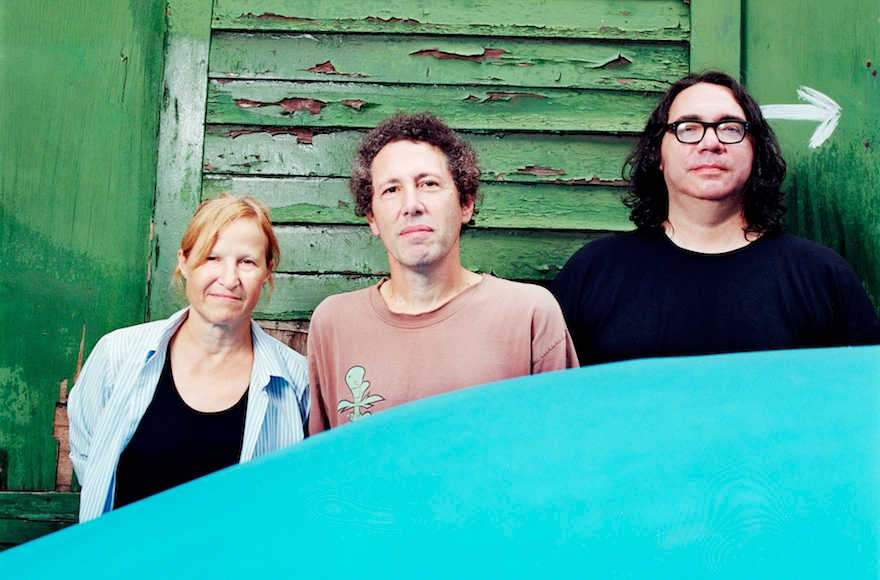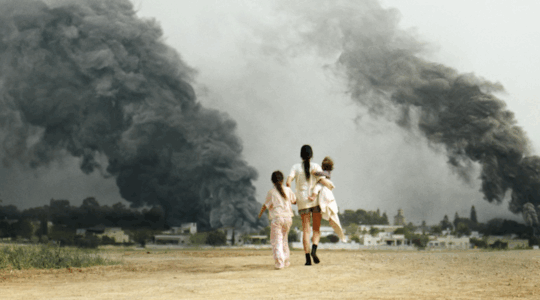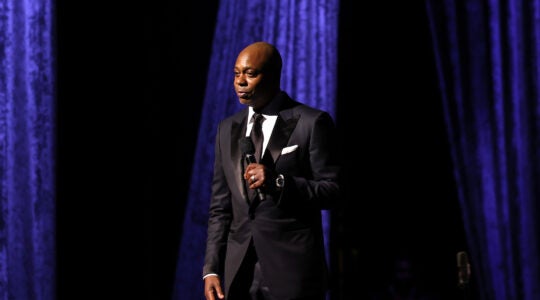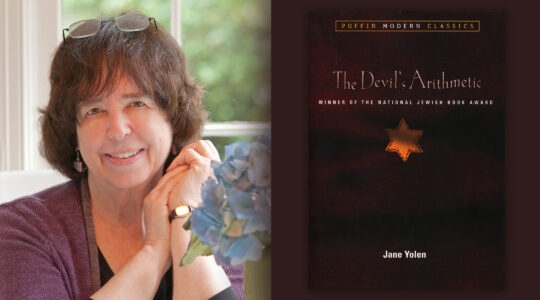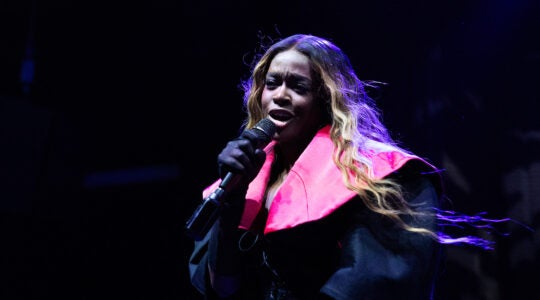NEW YORK (JTA) — For more than 30 years, indie darlings Yo La Tengo — guitarist and frontman Ira Kaplan, drummer Georgia Hubley (who is married to Kaplan) and bassist James McNew — has pumped out a steady stream of critically acclaimed rock music that spans an array of genres, from lo-fi grunge to psychedelia to soft folk.
Yet despite a long and impressive career, only one of the band’s 14 studio albums has cracked the top 40 of Billboard’s Top 200 Albums chart (2013’s “Fade”).
In 2001, the band became widely known for something completely different: playing shows on all eight nights of Hanukkah. The concerts at Maxwell’s, a small bar in Hoboken, New Jersey, quickly grew into an annual tradition. They also became mythical for their unpredictability: Each night, unannounced comedians would perform and special guests would join the band on stage.
Between 2001 and 2012, comedians such as Amy Poehler, David Cross and Fred Armisen, along with New York Dolls frontman David Johansen and Wilco singer Jeff Tweedy, all graced Yo La Tengo’s stage next to a signature electronic menorah that was trotted out for each gig.
But when Maxwell’s closed in 2013, the tradition — one so closely intertwined with the bar’s small, intimate space — ended.
“It seemed inconceivable to do it anywhere else,” Kaplan told JTA.
Fortunately for Yo La Tengo fans, the Hanukkah shows proved too good to be gone for long: They will return this year at the much larger Bowery Ballroom venue on Manhattan’s Lower East Side.
Why the comeback this year?
Kaplan says there was no “aha” moment or grand explanation, and that it finally just worked out again.
“Every year [after 2012] it would be discussed — are we going to do it somewhere else? And the answer was always no,” he said. “And this year the answer was different.”
Over the years, the success of the Hanukkah shows elevated the Festival of Lights to a central position in Yo La Tengo’s identity. But the band’s only Jewish member is quick to point out that there’s nothing religious about the tradition.
“I was interviewed by Marc Maron a couple of years ago and I said my Jewish background was cultural rather than religious,” Kaplan recalled. “And he said, ‘Oh yeah, everybody says that.’ Then I described mine and he conceded that mine really was.”
Kaplan, 60, grew up in suburban New York City’s Westchester County and did not have a bar mitzvah.
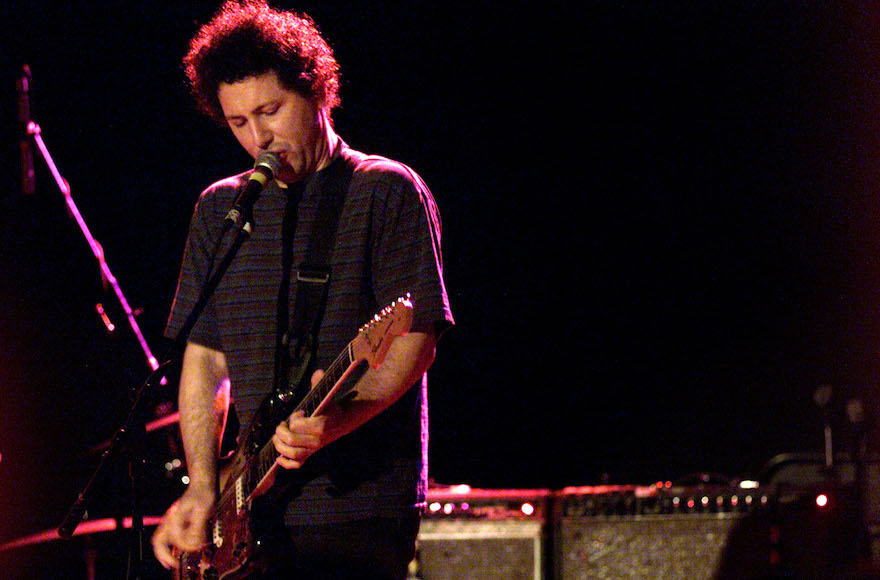
Ira Kaplan performing with the band at the Bowery Ballroom in New York City in 2003. (Getty Images)
The Hanukkah idea grew out of a longtime plan to play some sort of end-of-year holiday show for the band’s friends.
“Then every year it would come around and we’d go, ‘Well this is exactly what the world needs, one more Christmas party,’” Kaplan said.
A friend had the idea to make the show an homage to Hanukkah. Looking back on that day in 2001, Kaplan said he found the concept “audacious and funny simultaneously.”
While the Hanukkah gigs may be secular in origin, they have offered plenty of Jewish humor over the years. Kaplan fondly remembers the comedian Cross, who is Jewish, showing up on multiple occasions dressed as a rabbi and hosting an “Ask a Rabbi” segment.
“Other comics have explained Hanukkah in ways that probably would have diverged from some of the teachings in Hebrew school,” he added.
Jesse Jarnow, author of “Big Day Coming: Yo La Tengo and the Rise of Indie Rock,” estimates that he has been to more than 50 Yo La Tengo Hanukkah shows. His favorite Jewish moment came during a comedy set by Jon Glaser, who showed up as “Rabbi Attitude” and “went some place magical” with the idea.
But perhaps the most Jewish aspect of the Hanukkah shows is the religious-like devotion of Yo La Tengo’s most rabid fans. Jarnow said some attend multiple Hanukkah shows every year. Some are close friends, others are just nodding acquaintances — but they all unite behind a love for one of their favorite indie bands.
It became a yearly tradition, an indie rock holiday of sorts.
Which is just the way Kaplan likes it.
“Just don’t show up at Maxwell’s,” he quipped.
JTA has documented Jewish history in real-time for over a century. Keep our journalism strong by joining us in supporting independent, award-winning reporting.
